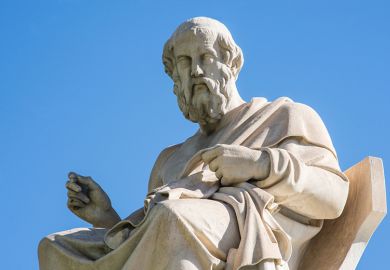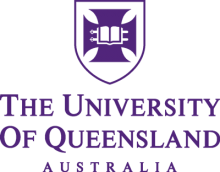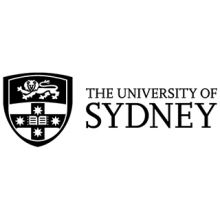The University of Queensland has signalled its intent to offer philanthropically funded “great books” courses after holding talks with the controversial Ramsay Centre for Western Civilisation.
But unlike the University of Wollongong – which announced an agreement with the Ramsay Centre a week before Christmas, astonishing staff who were unaware that talks had been underway – Queensland insists that its proposal is not a fait accompli.
“The university leadership recognises the need to keep an open mind, and respects the need to listen to staff as we consider the next steps,” Queensland says in an explanatory document published on 21 January.
“Any partnership agreement would have to be on the right terms and there would need to be safeguards built in to protect the university’s integrity and autonomy.”
The Ramsay Centre has drawn considerable flak with its proposal to support courses in Western civilisation with generous funds and scholarships. Critics have condemned the idea as “European supremacism writ large”.
The Australian National University ended negotiations last year, citing threats to its autonomy, while talks involving the University of Sydney have attracted bitter opposition from staff and students.
The Ramsay Centre’s negotiations with Queensland have been common knowledge, with the university submitting an expression of interest in mid-October. But Queensland says that it has kept the details under wraps “due to a confidentiality agreement signed by both parties”.
“Now that we have entered a new phase in our discussions, UQ recognises that it is both prudent and valuable to give genuine consideration to the views of all staff,” the university adds.
The proposal, which Queensland says is deemed “desirable and achievable” by both the university and Ramsay Centre, does not involve a newly badged degree. Instead, Western civilisation studies would be tacked on to two of Queenland’s existing programmes.
Under one option, students enrolled in the four-year bachelor of advanced humanities (honours) programme would study Western civilisation as an “extended major”. The second “pathway” would restructure a current honours law degree programme into an optional dual degree, with students adding Western-focused humanities to their legal studies.
A deal with the Ramsay Centre would enable Queensland to recruit up to 11 new academic staff, offering classes in tutorial groups of up to 10 students – a luxurious staff-to-student ratio by Australian standards.
The students would be eligible for scholarships of as much as A$135,000 (£75,000) over up to five years, with additional support for each of them to spend a semester overseas.
“We could not teach the pathways without significant resources that would flow from the partnership,” Queensland says. “This shows how external funding can radically alter how the university evaluates the viability of courses and majors.
“The proposed approach is not only to recover the meaning of the ‘great books’ but also to critically evaluate their value and significance. Talented young people would be taught in a pluralistic way to make sure future leaders are informed by the rigour that our humanities disciplines can and should inject.”
The Queensland document says that the university will maintain control over appointments, curriculum and teaching – and that academic independence is a “red-line issue”, with the new majors exposed to the regular approval mechanisms. “UQ will not cut corners or compromise its approval process,” it says.
If a memorandum of understanding is reached, the university intends to publish it.
Register to continue
Why register?
- Registration is free and only takes a moment
- Once registered, you can read 3 articles a month
- Sign up for our newsletter
Subscribe
Or subscribe for unlimited access to:
- Unlimited access to news, views, insights & reviews
- Digital editions
- Digital access to THE’s university and college rankings analysis
Already registered or a current subscriber?














